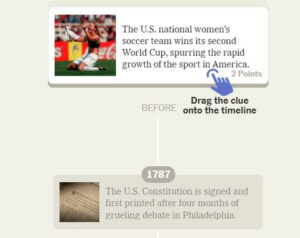Now there’s a word to get the backs up of the evidence-based practice brigade, isn’t it? I mean, to carry out a piece of research and actuallly acknowledge that you, yourself, doing the research, may have an angle, an interest, a stance, a position, as it were, in regard to the research is fundamentally in opposition to the notion that research should be carried out at a scientific arms length from the researcher.
Some research can be carried out at a distance from the researcher. Research into microbes, for example, into brain functions, into the movements of astronomical bodies, or into neuromuscular fatigue can all be done at a suitable distance from the person doing the research.
But1 when it comes to something social like education this is much much more difficult. Some elements of education are perhaps independently measurable, like what happens in the brain during instruction and activity, and how the brain works in terms of things like the Learning styles “meshing” with instructional style. When you look at a whole classroom, however, and the huge range of variables in place between the teacher, the context and the students in the room, then you cannot help but place your own position onto the thing being researched, and when said research is focussed on your own practice, your own classroom2 and the students you are teaching3.
Whatever, because anyway, my research was into the events in the class I was teaching, and the things that happened in that class. The demands of academic practice, founded as they are in positivistic research philosophy (even when they say they’re not…) have meant so I have spent far too many words and mental shenanigans on explaining that the research is necessarily subjective and should be read as such, and no, of course you can’t go around making grand statements about it, and I never said you should, but there’s some interesting things and some interesting ideas, and you might like to try them out or something. The upshot of that frankly ludicrous sentence is that who and what I am, and my beliefs and values are a part of it. How big a part, I don’t know, but they are a part.
There was a moment recently when this became really apparent to me. I was writing about iddah in my thesis. This is the waiting period observed by a Muslim widow when her husband dies, and carries with it clearly defined practices. This really highlighted my position in the research as a white British male atheist, raised in a broadly Christian tradition, living in a country which is decreasingly Christian in belief but which remains largely Christian in cultural practices4. So if I were to mention, say, Christmas or Easter in my text, I wouldn’t feel obliged to explain it or find some sort of reference to back up the term. Ramadan and Eid might be different, but again, I would probably just say what they are without linking to some external reference. I noticed, as well, as I wrote those, I italicised Ramadan and Eid, but not Christmas or Easter. That was an interesting thing too. Iddah is perhaps less widely known as a practice, of course, and would need some explaining for anyone who is not Muslim. Certainly I’d not heard of it until fairly recently (and this article is especially heartbreaking when you think about why it needed to be written). But my need to explain it while not explaining terms like Christmas or Ramadan (both of which appear in the research) really highlighted for me to acknowledge more carefully who I am in the research but also the background and cultures of anyone who might foolishly decide to read the research. I don’t think I will go back in and write an explanation or footnote for Christmas, mind you, and I think that iddah requires explanation. This is in part because aspects of it are pertinent to the research, but also because I think that Learning more about it is part of the Learning that I have been going through as a student of language Learning and of language learners.
As a writer of a thesis, as a researcher and as a teacher, I am entrenched in my culture. There’s nothing wrong with this, though. I am the product of my culture, and I have no wish to deny that. There are some good aspects to that culture and there are some bad aspects, and the former should be celebrated and the latter decried. Of course, I should criticise the negatives, of course I shouldn’t (mustn’t?) enact those negatives, and the same goes for all aspects of all cultures worldwide But none of these can be denied or exluded from who I am, and crucially for now, what this means for statements I make in my research. I have prejuduce, I have opinions, I have values, I have beliefs. They all come out as I work and I have to acknowledge them.
Now, to a certain type of person this probably comes over as “woke”. Certainly, I can’t leave a blog post like this without that word coming up. Thing is, if you think “woke” is bad, you’ve really got to ask yourself what you think “woke” means, and what it means for you to be criticising it. Yes, from one end of the woke/anti-woke continuum I am probably dreadfully woke. For those people, I am some ghastly leftie-woke practitioner researcher who writes random blog posts on positionality and goes around teaching English to “bloody immigrants.” For someone at the other end of the spectrum I am probably chock full of narrow-minded prejudices about class and race and gender, conscious and unconscious. And they’re both “right” in their assumptions about me when viewed from their own positions. Whether I agree with them is down to me, and who I am.
Which probably makes me woke, and that’s just fine.
#Positionality




More Stories
Why Should You Learn Generative AI Skills in 2024? – Dataquest
Empathy Essay: A Gateway to Compassionate Connection
What are the Guidelines for Accessible PDF? – DTP LABS